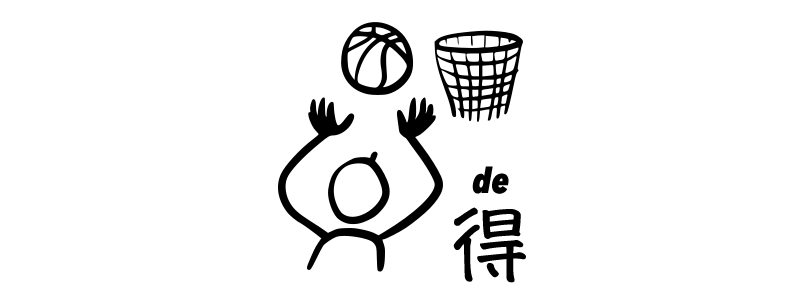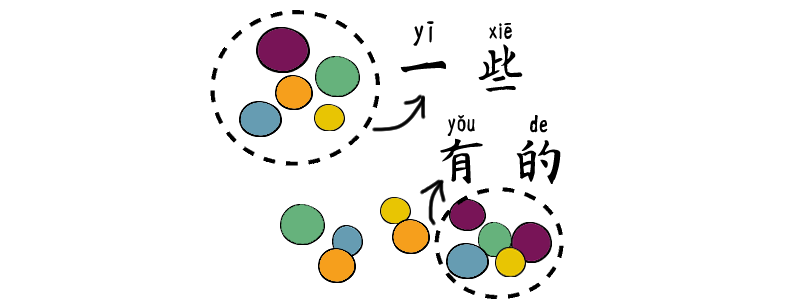Verb Object 書shū书shū 看書kànshū看书kànshū 🔊 Read books 책 읽기本を読む 看kàn看kàn 電視diànshì电视diànshì 看kàn電視diànshì看kàn电视diànshì 🔊 Watch TV텔레비전 보기テレビを見る 電影diànyǐng电影diànyǐng 看kàn電影diànyǐng看kàn电影diànyǐng 🔊 Watch movies영화 보기映画を見る 聽tīng听tīng 音樂yīnyuè音乐yīnyuè 聽tīng音樂yīnyuè听tīng音乐yīnyuè 🔊 Listen to music음악 듣기 音楽を聴く 唱chàng唱chàng 歌gē歌gē 唱歌chànggē唱歌chànggē 🔊 Sing (songs) 노래 부르기 歌を歌う 做zuò做zuò 運動yùndòng运动yùndòng 做zuò運動yùndòng做zuò运动yùndòng 🔊 Do exercise운동하기運動する 睡shuì睡shuì 覺jiào觉jiào 睡覺shuìjiào睡觉shuìjiào 🔊 (Take a) sleep 잠자기 (睡眠を)…
Author: tiffany
Time – 시간 – 時間
🔊 點diǎn点diǎn:hour – 시 – 時 🔊 分fēn分fēn:minute – 분 – 分 🔊 半bàn半bàn:half – 반 – 半 🔊 小時xiǎoshí小时xiǎoshí:hour – 시간 – 時間 🔊 分鐘fēnzhōng分钟fēnzhōng:minute – 분 – 分 🔊 現在xiànzài现在xiànzài:now – 지금 – 現在 Sentence 現在xiànzài幾jǐ點diǎn? 现在xiànzài几jǐ点diǎn? 🔊 What time is it now?지금 몇 시입니까?現在何時ですか? 現在xiànzài2 點diǎn15 分fēn现在xiànzài2 点diǎn15 分fēn 🔊 It’s 2:15.지금은…
Day – 날짜 – 日付
🔊 年nián年nián:Year – 년 – 年 🔊 月yuè月yuè :Month – 월 – 月 🔊 號hào号hào:Day – 일 – 日 大dà前天qiántiān大dà前天qiántiān 🔊 2 days before yesterday그그저께 – 昨々日 前天qiántiān前天qiántiān 🔊 the day before yesterday그저께 – おととい 昨天zuótiān昨天zuótiān 🔊 yesterday어제 – 昨日 今天jīntiān今天jīntiān 🔊 today오늘 – 今日 明天míngtiān明天míngtiān 🔊 tomorrow내일 – 明日 後天hòutiān后天hòutiān 🔊 the day after…
Numbers – 숫자 – 数字
0️⃣ 1️⃣ 2️⃣ 3️⃣ 4️⃣ 零líng零líng 🔊 一yī一yī 🔊 二èr二èr 🔊 三sān三sān 🔊 四sì四sì 🔊 5️⃣ 6️⃣ 7️⃣ 8️⃣ 9️⃣ 五wǔ五wǔ 🔊 六liù六liù 🔊 七qī七qī 🔊 八bā八bā 🔊 九jiǔ九jiǔ 🔊 0️⃣ 1️⃣ 2️⃣ 3️⃣ 4️⃣ 零líng零líng 🔊 一yī一yī 🔊 二èr二èr 🔊 三sān三sān 🔊 四sì四sì 🔊 5️⃣ 6️⃣ 7️⃣ 8️⃣ 9️⃣ 五wǔ五wǔ 🔊 六liù六liù 🔊 七qī七qī…
Countries – 국가 – 国
Country국가 – 国 People사람 – 人 Language언어 – 言語 台灣Táiwān台湾Táiwān🔊 台灣人Táiwānrén台湾人Táiwānrén🔊 中文zhōngwén中文zhōngwén🔊 中國zhōngguó中国zhōngguó🔊 中國人Zhōngguórén中国人Zhōngguórén🔊 中文zhōngwén中文zhōngwén🔊 英國yīngguó英国yīngguó🔊 英國人yīngguórén英国人yīngguórén🔊 英文yīngwén英文yīngwén🔊 美國měiguó美国měiguó🔊 美國人měiguórén美国人měiguórén🔊 英文yīngwén英文yīngwén🔊 日本rìběn日本rìběn🔊 日本人rìběnrén日本人rìběnrén🔊 日文rìwén日文rìwén🔊 西班牙xībānyá西班牙xībānyá🔊 西班牙人xībānyárén西班牙人xībānyárén 🔊 西班牙文xībānyáwén西班牙文xībānyáwén🔊西文xīwén西文xīwén🔊 德國déguó德国déguó🔊 德國人déguórén德国人déguórén🔊 德文déwén德文déwén🔊 韓國hánguó韩国hánguó🔊 韓國人hánguórén韩国人hánguórén🔊 韓文hánwén韩文hánwén🔊 法國fǎguó法国fǎguó🔊 法國人fǎguórén法国人fǎguórén🔊 法文fǎwén法文fǎwén 🔊 加拿大jiānádà加拿大jiānádà🔊 加拿大人jiānádàrén加拿大人jiānádàrén🔊 英文yīngwén英文yīngwén🔊法文fǎwén法文fǎwén 🔊 荷蘭hélán荷兰hélán🔊 瑞典rùidiǎn瑞典rùidiǎn🔊 丹麥dānmài丹麦dānmài🔊 巴西bāxī巴西bāxī🔊 比利時bǐlìshí比利时bǐlìshí🔊 Sentence 你好nǐhǎo你好nǐhǎo 🔊Hello. 안녕하세요こんにちは 我wǒ姓xìngHuang 我wǒ姓xìngHuang 🔊My last…
先 xiān ··· 再 zài ··· Grammar
Grammar Point:The grammar structure 先 xiān…再 zài… in Chinese is used to express a sequence of actions or events, indicating that one action or event happens before another. Structure (S) 先 VO,(S) 再 VO Remember to place the subject before 再 zài, and when the two subjects are the same, you can drop the second…
得 de Grammar
Grammar Point:The verb modifier 得 de comes between the verb and the complement, describing the result or state of the action represented by the verb. Structure V + 得 de + Adj. In Mandarin Chinese, the results always come after the actions. 你nǐ走zǒu得de很hěn快kuài你nǐ走zǒu得de很hěn快kuàiYou’re walking fast. 他tā睡shuì得de非常fēicháng好hǎo他tā睡shuì得de非常fēicháng好hǎoHe slept very well. 媽媽māma說shuō得de不bù清楚qīngchǔ妈妈māma说shuō得de不bù清楚qīngchuMom didn’t speak clearly. 你nǐ做zuò得de很hěn好hǎo你nǐ做zuò得de很hěn好hǎoYou did…
Some and Some of in Chinese
Grammar Point:In Chinese, the words “some,” “some of,” and “others” can be translated as follows: Structure 一些 yìxiē + N One thing you need to know is that there is no negation form for this structure. Also, in spoken Chinese, it is possible to drop the word 一 yī. 我wǒ有yǒu一些yìxiē中國Zhōngguó朋友péngyǒu我wǒ有yǒu一些yìxiē中国Zhōngguó朋友péngyouI have some Chinese friends. 我wǒ想xiǎng買mǎi一些yìxiē水果shuǐguǒ我wǒ想xiǎng买mǎi一些yìxiē水果shuǐguǒI…
This and That in Chinese
Grammar Point:The terms “here” and “there” in Chinese can be translated as follows: Structure 這/这 or 那 + Measure Word + N In colloquial and informal contexts, it is possible to drop the measure word. 這zhè個ge蛋糕dàngāo真zhēn好吃hǎochī这zhè个ge蛋糕dàngāo真zhēn好吃hǎochīThis cake is delicious. 那nà位wèi老師lǎoshī很hěn討厭tǎoyàn那nà位wèi老师lǎoshī很hěn讨厌tǎoyànThat teacher is annoying. 這zhè是shì我的wǒde嗎ma? 这zhè是shì我的wǒde吗ma? Is this mine? 那nà人rén好hǎo漂亮piàoliàng! 那nà人rén好hǎo漂亮piàoliang! That person is so beautiful!…
Here and There in Chinese
Grammar Point:The terms “here” and “there” in Chinese can be translated as follows: Structure These words indicate location and can be used to specify a place or refer to a position relative to the speaker. 這兒这儿 zhèr and 那兒儿 nàr are more colloquial and informal versions. In Taiwan, the 兒儿 er is usually dropped. 這裡zhèlǐ有yǒu一yì隻zhī可愛kěài的de小xiǎo狗gǒu这里zhèlǐ有yǒu一yì只zhī可爱kěài的de小xiǎo狗gǒuHere…




